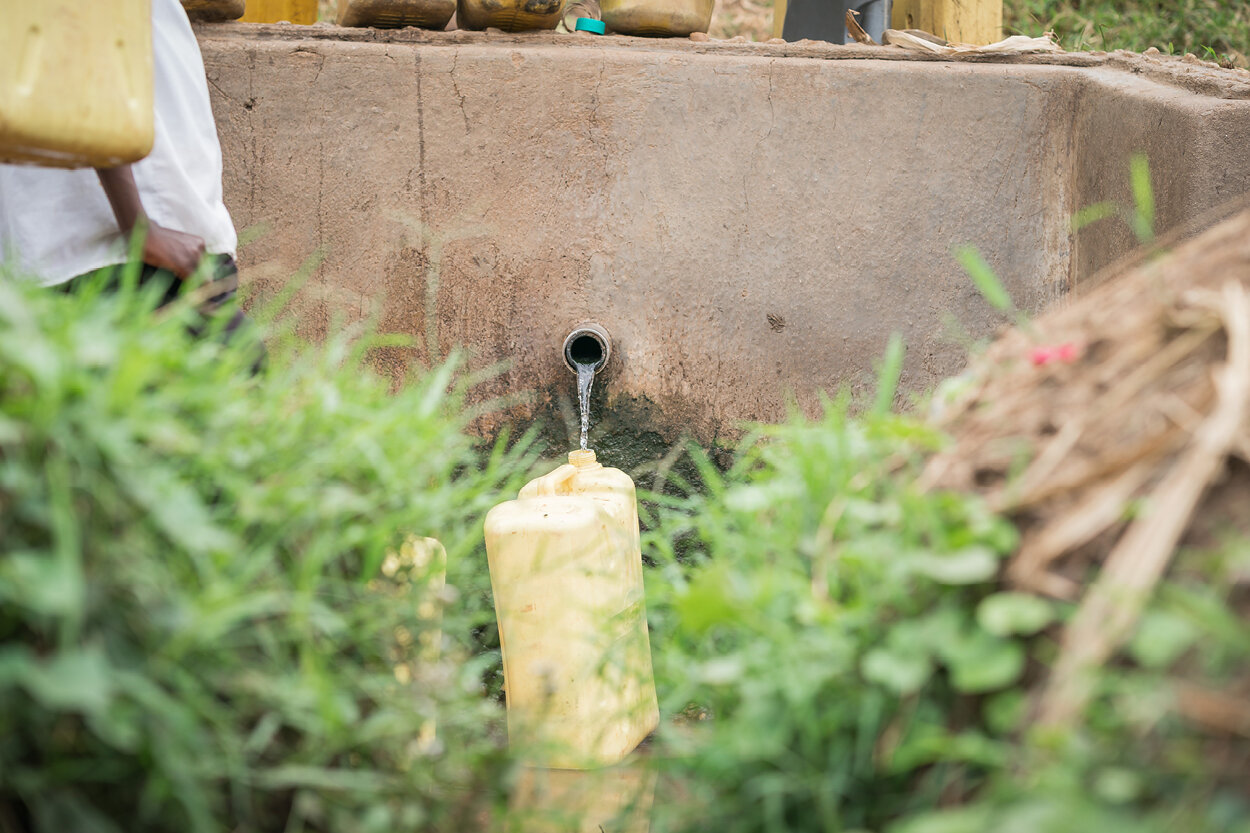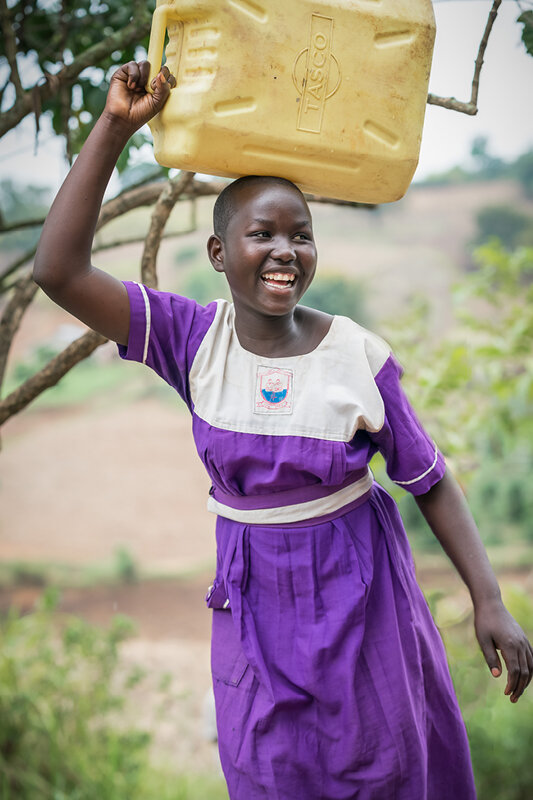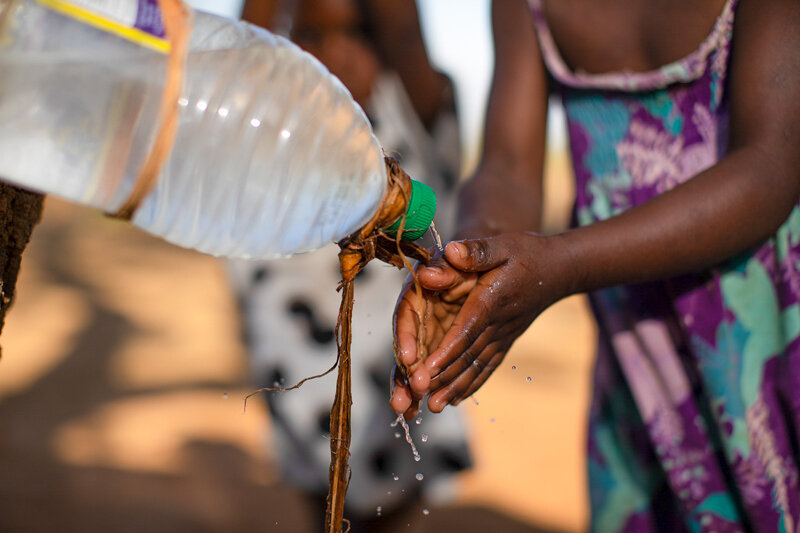Water is integral to life. Not a single one of us could live without it! Three hundred twenty-five million people in sub-Saharan Africa lack access to clean water, comprising 41% of the global burden. Lack of water causes 842,000 people, including 361,000 children, to die every year from diarrhea due to unsafe water, sanitation, or hygiene.
Additionally, in 8 out of 10 households, girls are tasked with walking to get the family’s water supply for the day, often spending hours walking and waiting in line for a water source that may not even be sanitary.
What Solution is Best?
It is easy to identify the need for clean or accessible water. The next step is for the community and its leaders to figure out what solution will be the most effective for long-term change.
While some may benefit significantly from a borewell, others may benefit more significantly from a rain catchment system or a tippy tap, for instance. It may be more useful for a household to have access to its solution for one community, and somewhere else, it may be better for the whole community to have a common place to go.
How Much Does it Cost to Build a Well?
Once you figure out what’s going to be the most effective for the most significant number of people, the cost of any given solution varies from place to place. For example, it is more expensive to drill a well in Kenya than it is in Malawi due to the availability of resources, cost of labor, distance to get to the community and a handful of other factors. A tippy tap, for instance, doesn’t even require any complicated engineering, which will be much cheaper than a full well!
All that to say, a water solution could cost $10, or it could be upwards of $10,000. It really depends on the particular circumstances of each community’s needs.
Change Beyond Measure
Once you factor in these elements, the real challenge in measuring how many people are affected by water. There are indescribable changes that can spread out beyond what we can ever truly know when local experts and the community are included in the decision-making.
For every water point established in a community, our partners also develop a water committee that teaches essential sanitation and hygiene principles to add healthy behavior to their new healthy water source. Once someone knows this information, they can spread it to their neighbors, family members, friends, church members, or even a random person on the road!
Therefore, we are so proud to say that not only can they receive access to water that will enable them to live healthily and happily. They also obtain knowledge that will aid them and their families and communities for generations to come. It is miraculous work done in simple yet profound ways!
>
“Since [Blood:Water’s partner] supported our school, the situation has changed for the better. The hand-washing station was constructed and connected to the water tank to ensure that children have access to clean water to wash their hands whenever they use the toilets.”
The Gikongoro School
For instance, take the story of the Gikongoro School in Rwanda, where 1,500 students come to school at risk for all sorts of infections from dirty water and poor sanitation. The children didn’t have anywhere to wash their hands, a significant risk when such a large number of people are in such close contact with one another regularly.
When the school’s leadership constructed two handwashing stations, lives were changed, and these students can now feel confident that they won’t have to miss school repeatedly or for so long that they get irreparably behind in their studies.
What We Can Do
The work we do is not easy. It is not always straightforward or simple. However, we know that we can play a part in ensuring that kids finish school, women, and girls can spend more time providing for their families than collecting water, and vulnerable children will not succumb to preventable disease, we will continue to fight.
We hope that you will join us today in empowering our African partners to reach more people than ever before, numbers that are so great only God knows how far they will reach!
More Stories:
Categories





